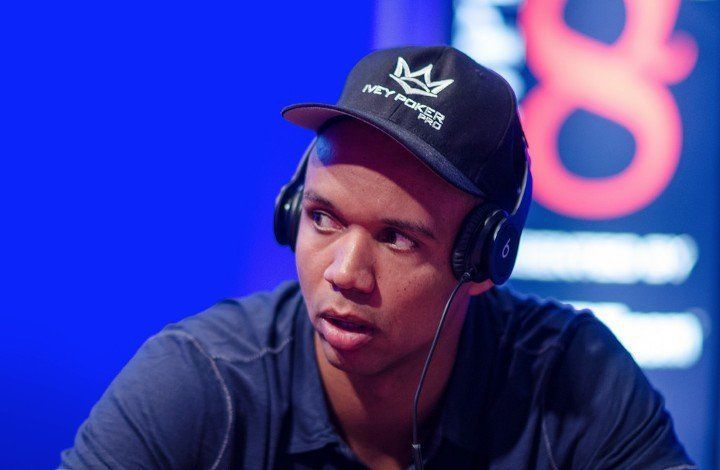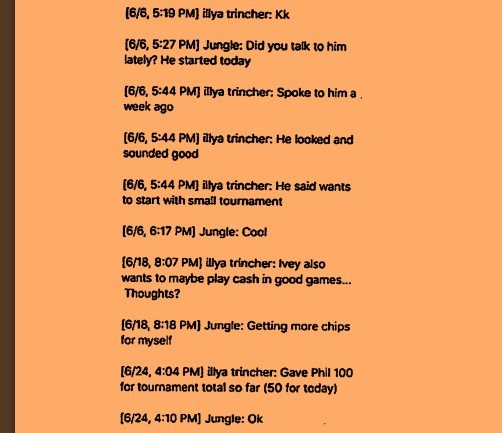Latest twist in Borgata saga raises the question – is Phil Ivey broke?
Only a couple of months has passed since the last twist in the tale of Phil Ivey and Borgata, and already, we have interesting new information coming to light wich could suggest that Phil Ivey is in fact, broke.
The poker great was seemingly backed for 100% of his WSOP action and cash games this summer as revealed by a court-filed objection to Borgata’s seizure of his $50K Player’s Championship (PPC) winnings lodged byDaniel Cates and Illya Trincher.
This latest story has come to light courtesy of flushdraw.net.
The latest facts

The story of Ivey’s edge-sorting dispute with Borgata and Crockfords has been heavily publicised in recent years, and the case has been puzzled over and discussed by the poker world as its journey through the legal system unfolded. Judges in the UK ruled that Crockfords did not owe Ivey any of the millions of pounds he had won there, and Borgata went on to win a similar case against him in the states. With Ivey having not paid any of the $10.3 million he was ordered to pay Borgata, the casino has since received legal assent to go after Ivey’s assets in New Jersey and Nevada including his 2019 WSOP winnings but to date, has not retrieved what is owed.
Most in the poker world have probably been assuming that Ivey has been moving his assets around to stay one step ahead of Borgata and make life difficult for them. However, a recent legal objection filed by Daniel Cates and Illya Trincher raises a far more shocking possible reason why Borgata are struggling to seize what is owed. Phil Ivey is broke.
The objection filed by Cates and Trincher includes evidence that they are owed a portion of Ivey’s $50K PPC winnings, which comes in the form of a conversation the two had online in late June. The chat mentions backing Ivey for 100% of his WSOP action, and possibly cash games too.

Cates and Trincher claim their deal with Ivey entitles them to the $50,000 they paid for his entry plus half of any profits which is $37,205. This brings the total of their claim to $87,205.
Given the new information which has come to light, there are only two realistic possibilities.
An attempt to avoid assets seizure?
The first, is that the three players constructed an elaborate ruse or deal before the WSOP where Ivey may have sold 100% of his action to Cates and Trincher at a cheap price knowing there was a risk funds could be seized.
Or alternatively, Trincher and Cates could have falsely created the messages as a backup plan for Ivey in case his funds were seized.
This would be so risky that it’s a highly unlikely scenario, and a player of Cates’ perfect reputation would almost certainly never involve himself in it. However, it’s worth noting that Trincher has a less unblemished background, having been jailed for 6 months in relation to high stakes illegal sports betting in 2014.
Assuming the staking deal is real and legitimate, staking deals are legally binding under Nevada law. But, Ivey’s problems with Borgata have been very public and a judge could yet decide that Cates and Trincher would have known their winnings could be seized before backing Ivey. This could cause the judge to rule against them.
Phil Ivey in financial difficulty?
This second hypothesis makes more sense and seems to be the truth; Phil Ivey is broke, the 100% staking of his WSOP action and the chats between Cates and Trincher are all totally authentic. Phil Ivey’s net worth has previously been estimated as being tens of millions of dollars, but after seven years of legal fees and not playing much poker due to his mind being distracted by the case, it is not impossible that the ten-time bracelet winner may have lost everything. Especially if he has been living a luxury lifestyle during those years.
If this possibility were true, it would explain why Borgata cannot find any of Ivey’s assets in New Jersey or Nevada.
Article by Craig Bradshaw
























